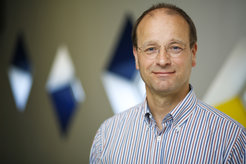Ulman Lindenberger elected Foreign Member of the Royal Society
The world’s oldest national scientific association honors the German developmental psychologist and cognitive neuroscientist for his outstanding achievements

Ulman Lindenberger, Director of the Center for Lifespan Psychology at the Max Planck Institute for Human Development in Berlin, has been elected to the Royal Society. The prestigious British association recognizes his conceptual, methodological, and empirical contributions to lifespan psychology.
Lindenberger has studied the interplay of maturation, learning, and aging. His work has significantly advanced our understanding of individual differences in cognitive development across the human lifespan. The German-Italian psychologist and neuroscientist has published over 475 scientific papers and has received numerous honors, including the Gottfried Wilhelm Leibniz Prize awarded by the Deutsche Forschungsgemeinschaft. He is already a member of the Royal Swedish Academy of Sciences and the German National Academy of Sciences Leopoldina.
Founded in 1660, the British Royal Society is considered the oldest national scientific association in the world. Its mission is to promote scientific excellence and to advance the application of knowledge for the benefit of humanity. Election to the Royal Society is based on a rigorous peer review process. Each year, up to 97 Fellows are selected from a pool of around 800 candidates, including up to 24 from outside the United Kingdom.
Sir Adrian Smith, President of the Royal Society, said: “The strength of the Fellowship lies not only in individual excellence, but in the diversity of backgrounds, perspectives and experiences each new member brings. This cohort represents the truly global nature of modern science and the importance of collaboration in driving scientific breakthroughs.”
With his election, Lindenberger joins a group of approximately 1,800 Fellows and Foreign Members, including around 85 Nobel laureates. Past members have included such eminent figures as Isaac Newton, Gottfried Wilhelm Leibniz, Charles Darwin, Albert Einstein, Stephen Hawking, and Lise Meitner.
Further information:












